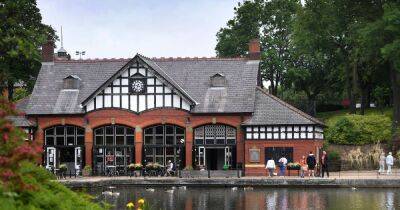It's crunch time for saving our peatlands - and celery grown in Greater Manchester may provide the answer
In the first trial of its kind in the country, celery is to be grown in a pioneering 'wetter farming' project. The low-calorie vegetable, which helps the digestive and cardiovascular system, is being grown in a project aiming to show how degraded bogs can be restored to capture carbon, bolster biodiversity, and provide an income for farmers.
The Wildlife Trust for Lancashire, Manchester and North Merseyside is behind the pioneering trial, growing celery on an area of re-wetted peatland in Greater Manchester – a trial that is being watched, with interest, by the agricultural community nationally.
Across the UK, large areas of lowland peatlands have been drained and converted to farmland. In Lancashire, Greater Manchester and North Merseyside alone, 98 per cent of our lowland peatlands have been lost to drainage, releasing untold amounts of carbon into the atmosphere.
READ MORE: The gentle giant who is the guardian of "Greater Manchester's Serengeti"
By re-wetting these drained areas, the carbon emissions can be significantly reduced. However, re-wetting land and restoring it back to natural peat bog is not always financially viable for farmers and landowners, who still need to make money from the land and grow a food crop. But wetter farming could the answer.
Wetter farming, also known as paludiculture, involves re-wetting land and growing crops that can tolerate higher water tables. The pilot project is the first time that anyone in the UK has trialled farming traditional food crops, such as celery, on land with a higher water table.
Research - conducted by Manchester Metropolitan University at the Lancashire Wildlife Trust-owned Winmarleigh carbon farm - has shown an 86 per cent reduction in greenhouse gas emissions







